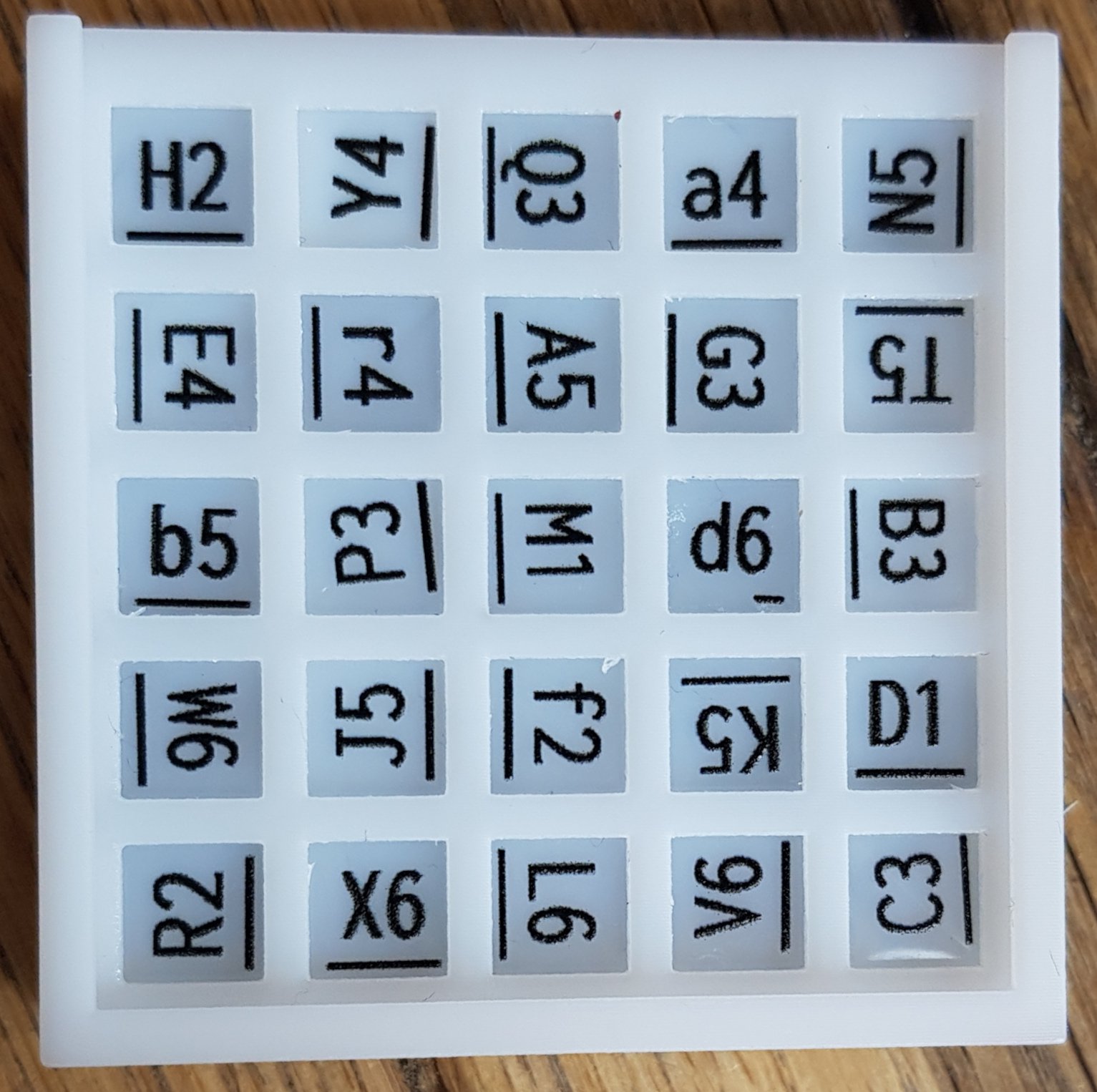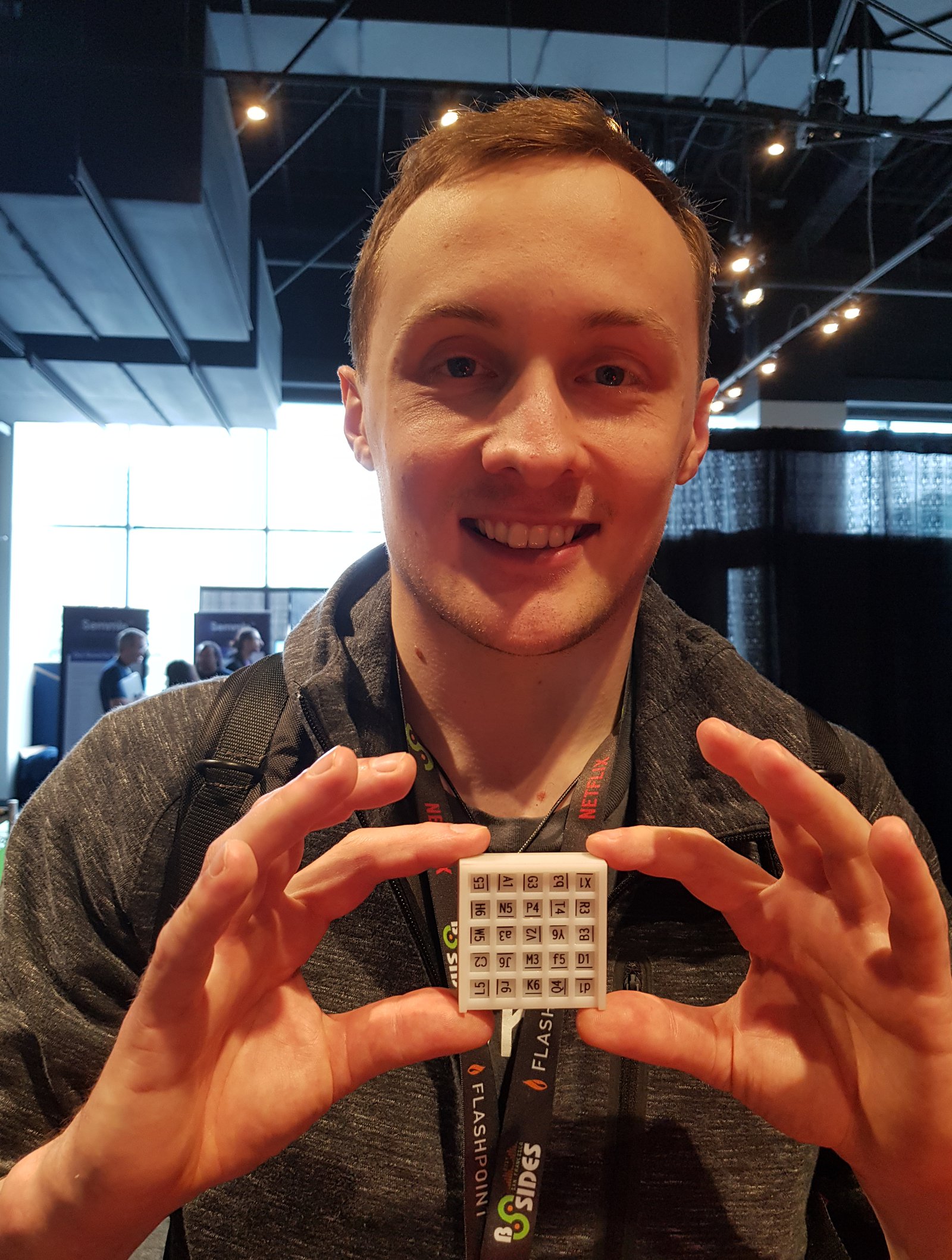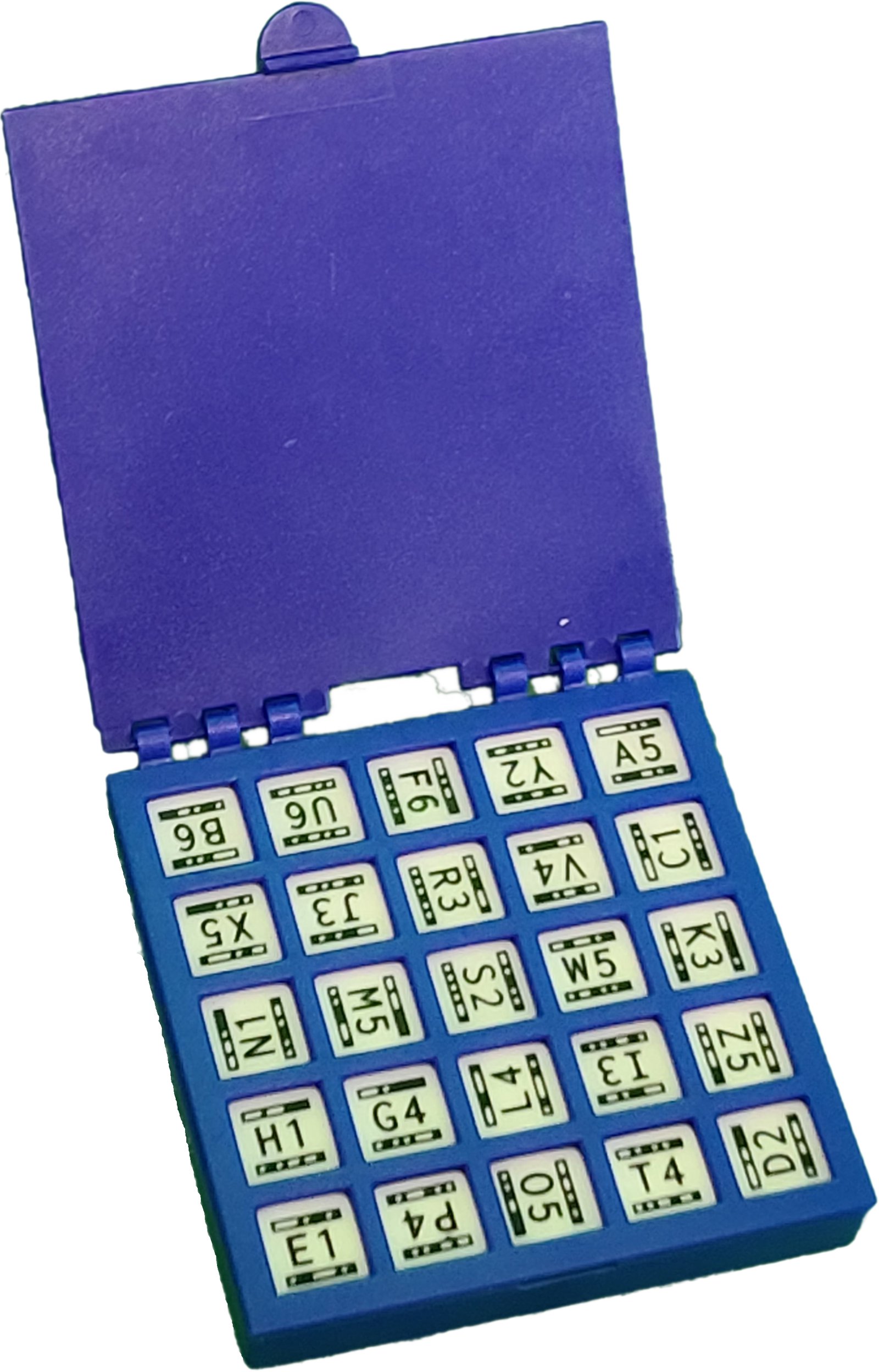Project update 1 of 12
Launch Announcement!
by Stuart SchechterIt’s been a frantic rush to produce our introductory video and polish our launch materials for this campaign, so allow me to use this update to take a step back.
I’ll share our product’s history, our values, and how those values are reflected in our business model.
Before I start, I’d like to encourage you to please email me any questions you have about DiceKeys so I can answer them in a future update, or at our upcoming AMA (ask me anything) on Wednesday, September 2nd in the Crowd Supply Discord Server.
How we got here.
DiceKeys was conceived at an event organized and sponsored by SimplySecure in January of 2019. It took place in Berlin and we were housed in a hotel with a shrine to David Hasselhoff. Little did I know that in 2020, it would be useful to have experience taking selfies with a layer of glass between me and the other subject of the photo.
I built the first prototype with 16mm dice and stickers kindly procured by one of my fave designers: SimplySecure’s Molly Wilson.
By March of 2019, I had settled on the current 5x5 layout, had received silk screened 8mm dice, and had 3D printed a prototype box.
I brought the prototype to the BSidesSF security conferences, where I met Emanuelle and Conor (pictured) from SoloKeys.
Problems we had to solve
Dice production
So, about the prototype dice, which look like they were printed by a miscalibrated 1980s-era dot matrix printer.
Sourcing dice is challenging because of our unusually high image resolution and placement requirements. While gambling dice have notoriously strict requirements, they use dots known as "pips" and not printed images. Since dice with images are typically used in less demanding applications, we had to talk to lots of manufacturers and get lots of samples to hit our quality bar. We also moved to 12mm dice and may include a 16mm in the future.
We also explored metal dice and are working on a steel product. We’re starting with plastic because metal dice can scuff each other when rolled. Also, metal containers are much harder to design.
Reading the letters on the dice
We couldn’t use off-the-shelf optical character recognition (OCR) software like Google’s open-source Tesseract OCR. While there have been many great advancements in OCR, DiceKeys don’t benefit them. For example, while OCR can use probabilistic language models to predict likely characters from surrounding words, there are no words in DiceKeys. While deep learning can help determine how characters are laid out and recognize characters in fonts the system hasn’t been trained on, DiceKeys also use a consistent layout and a single font (Inconsolata Bold).
Further, the use of deep learning by modern OCR makes it effectively impossible to reason about these algorithms, what conditions may cause them to fail, and what types of failures are likely to occur.
So, we wrote a custom OCR algorithm that is simple and easy to reason about. We added double error-correction codes, specially designed to ensure the most likely causes of errors (such as glare and scratches) don’t cause the dice to be misread.
The box
The design affordances we added to the box are harder to spot but also important. We tested myriad shapes at the bottom to shepherd your dice squarely into one of the 25 valid positions as they drop.
We re-designed the hinged lid so it can’t accidentally be assembled facing in the wrong direction.
We went through multiple revisions to ensure that, once you assemble your key by closing the box, it shouldn’t release your dice even if dropped from your desk or grabbed by a toddler. The result is what you now see in our campaign and on the DiceKeys website.
Our values
I’ve spent much of my career performing scientific research to measure the limitations of security products and technologies, and to help users protect themselves online. In addition to consumer protection, I’ve promoted transparency and ethics in the scientific research community, and put these principles into practice in the course I teach.
Our advisors also have a track record of doing work that’s in the public interest and promoting public-interest tech. And, we’re also fortunate to have have found CrowdSupply, which has similar values.
We want our business model and pricing to be simple and easy to understand, with nothing hidden. We also want customers to understand the limitations of our product as clearly as they do the benefits.
We’ve eschewed outside investment because, too often, the requirement to maximize shareholder value interferes with those values. Too many companies take efforts to make their pricing harder to understand. I’m sure you’ve seen them. Some sell subscriptions priced by month, with fine print requiring a one-year subscription. Some convince you the product will contain everything you need, only to convince you that you need more. Some promise to keep the same price, but then sell out to a company that is no longer under an obligation to keep prices low.
Our business model
The product
We produce the DiceKeys hardware (the 25 dice and box that holds them) and the accompanying software.
We designed the software to allow you to use your DiceKey with different apps, so you only need one for yourself.
The hardware is designed to last a lifetime, so if all goes well (don’t lose it) you should only need to buy more if you want to give them to others.
How we make money
We sell the DiceKeys hardware for a one-time price paid up front.
Since the software is an important component of the product, and needs to work even after we’re gone (hopefully not soon) we are open sourcing the software.
You or others can modify and improve the software, potentially making the DiceKey you have already paid for even more valuable to you.
In addition to earning revenue from selling DiceKeys, we anticipate being paid to include (vetted) offers for products in direct-to-consumer shipments of DiceKeys. If we do so, we will disclose that these placements were paid placements.




